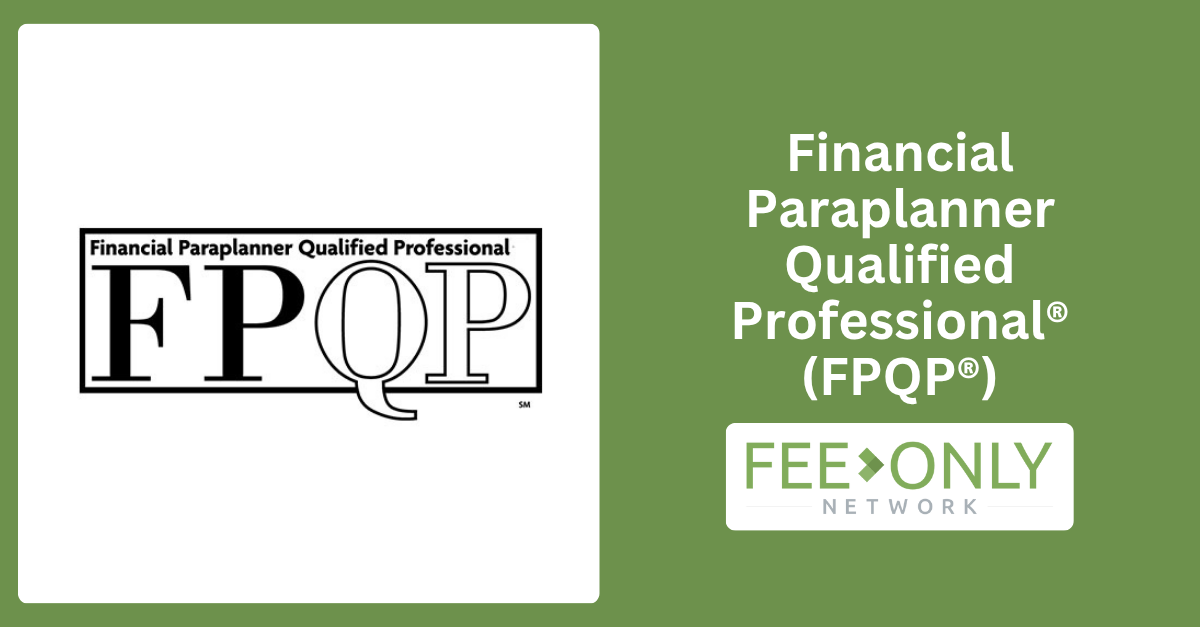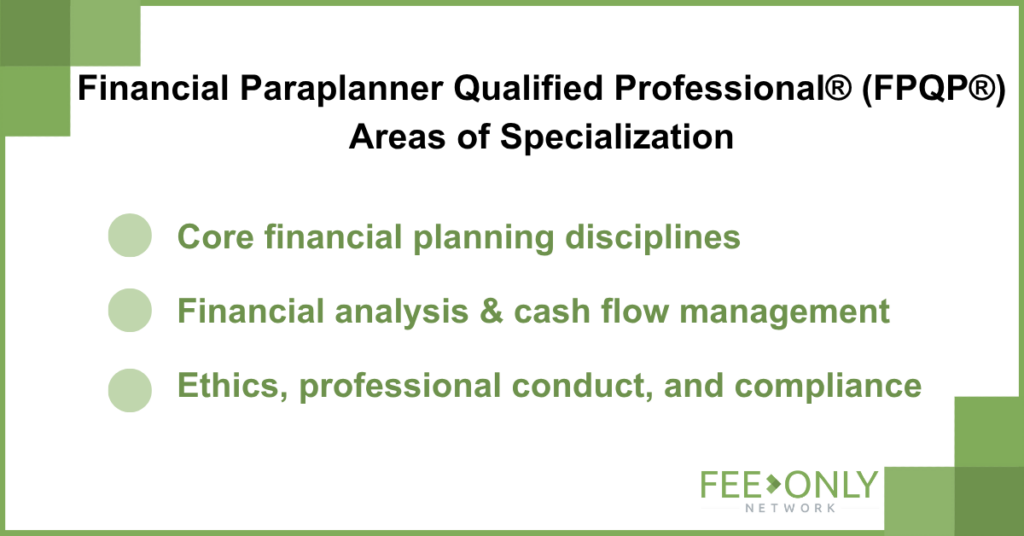
Updated: June 30, 2025

A Financial Paraplanner Qualified Professional® (FPQP®) is a certification from the College for Financial Planning® (a Kaplan company), designed to validate foundational knowledge in personal financial planning. The curriculum spans areas such as retirement, tax, investments, insurance, and estate planning—typically through about 100–144 hours of self-paced study followed by a 75-question closed-book exam with a 70% passing score. This designation signals to clients and employers that the holder possesses credible, practical expertise and operates under ethical and professional standards.

The designation is perfect for paraplanners, support staff, or entry-level professionals looking to deepen their financial planning knowledge. It equips them to support advisors more effectively and potentially interact with clients—though direct client advising remains under supervision.
The FPQP® designation marks a built-in foundation in financial planning fundamentals, making paraplanners and support staff more competent and credible. With structured study, formal testing, and ethical expectations, FPQP® holders can effectively contribute to the client-facing work of financial teams while pursuing further credentials.
College for Financial Planning® (a Kaplan Company) administers the FPQP® certification, renewal, exam, and ethical standards.
What does FPQP® stand for?
FPQP® stands for Financial Paraplanner Qualified Professional®—reflecting proficiency in financial planning support.
Is the FPQP® recognized by regulators?
FINRA lists FPQP® as a current credential from the College for Financial Planning®, though it does not endorse any credentials.
How long does FPQP® training take?
Typically 100–144 hours of self-study over up to 120 days.
How much does it cost?
Enrollment usually costs around $1,300–$1,350, including study materials and exam attempts.
Can FPQP® holders give financial advice?
They support the planning process but typically do not provide formal advice; they work under advisor supervision.

Allan Slider is the Founder of FeeOnlyNetwork.com, a one-of-a-kind digital platform that elevates the visibility of fee-only financial advisors, individually and collectively. Fee-Only advisors are ONLY compensated by the client and NEVER make commission by selling financial products, or receiving kickbacks from brokerage firms. Allan is a consumer & investor advocate and a 20+ year veteran of online marketing for financial advisors.

If you're seeing this message, it's because the web browser you're using to access our site is much older and no longer supported. Due to privacy and safety concerns, we don't allow older browsers to access our site. In order to access WhyFiduciary.com, please use a newer browser, like Internet Explorer 10 or above, Google Chrome, or Mozilla Firefox.
Download a newer browser